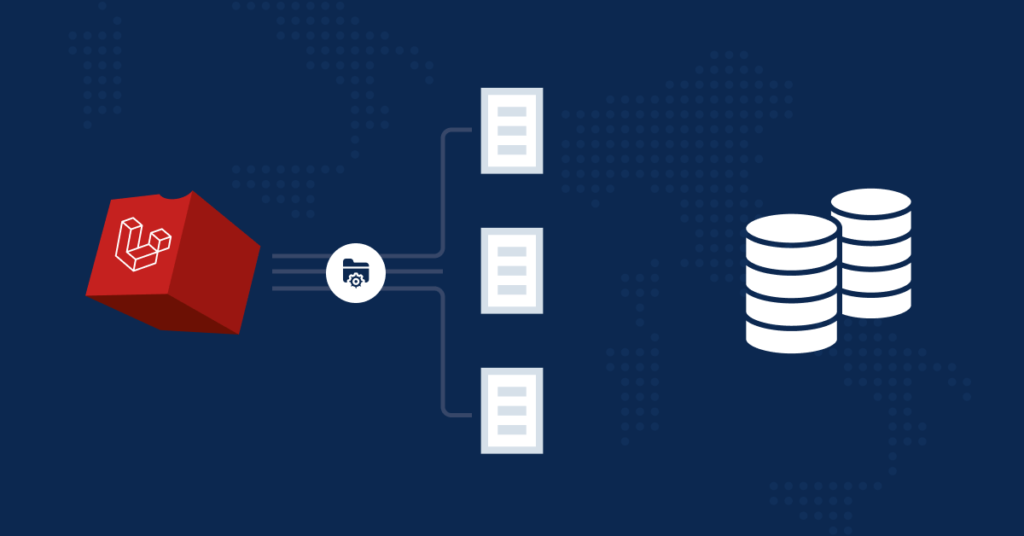In the ever-evolving landscape of technology, businesses must continuously adapt to stay competitive. One of the key areas where adaptability is crucial is in the software and platforms that businesses use to operate and grow. As companies expand and their needs become more complex, the underlying technology stack must evolve to support these changes. This is where Laravel migration comes into play—a process that involves moving an existing application or system to the Laravel framework. In this guide, we will explore why Laravel migration is important for your business, the benefits it offers, and how it can be a game-changer in today’s digital economy.
Reasons Why Laravel Migration is Important
1. Understanding Laravel and Its Popularity
Before diving into the importance of Laravel migration, it’s essential to understand what Laravel is and why it has become one of the most popular PHP frameworks in the world. Laravel, introduced in 2011, is an open-source PHP framework that provides developers with an elegant syntax, robust tools, and a comprehensive ecosystem for building modern web applications.
Laravel’s popularity stems from its ability to simplify complex tasks like routing, authentication, and caching, which are common in web development. It is designed to be developer-friendly, with a focus on clean, reusable code and modular architecture. This not only speeds up the development process but also ensures that applications are scalable, maintainable, and secure.
2. The Need for Migration: When and Why
Businesses often start with a basic technology stack that meets their initial requirements. However, as the business grows, so does the complexity of its operations, customer interactions, and data management needs. This growth can lead to the realization that the current system is no longer sufficient to handle the increased load or deliver the desired performance.
Laravel migration becomes necessary when a business’s existing application or platform cannot scale, lacks modern features, or poses security risks. Migrating to Laravel can provide the following advantages:
- Improved Performance: As businesses grow, the performance of their applications becomes critical. Laravel’s built-in tools and features, such as Eloquent ORM and caching, optimize performance and ensure that the application can handle increased traffic and data processing demands.
- Scalability: Laravel’s modular architecture makes it easy to scale applications as the business grows. Whether it’s adding new features or expanding to handle more users, Laravel provides the flexibility needed to scale efficiently.
- Enhanced Security: Security is a top priority for any business, especially those handling sensitive customer data. Laravel comes with robust security features, such as protection against SQL injection, cross-site scripting (XSS), and cross-site request forgery (CSRF). Migrating to Laravel can significantly reduce the risk of security breaches.
- Modernization: Outdated technology can hinder a business’s ability to innovate and compete. Laravel provides a modern, up-to-date framework that supports the latest web development standards and practices, enabling businesses to stay ahead of the curve.
3. Benefits of Laravel Migration for Your Business
Migrating to Laravel offers a multitude of benefits that can transform the way your business operates. Below are some of the key advantages:
a. Enhanced Development Speed and Efficiency
Laravel’s developer-friendly environment significantly speeds up the development process. Features like Laravel’s Artisan command-line tool, which automates repetitive tasks, and Blade templating engine, which simplifies the creation of dynamic content, enable developers to work more efficiently. This results in faster development cycles and quicker time-to-market for new features and updates.
b. Robust Ecosystem and Community Support
Laravel boasts a vast ecosystem of tools, libraries, and extensions that can be easily integrated into your application. This ecosystem includes everything from payment processing (e.g., Stripe, PayPal) to third-party API integrations. Additionally, Laravel has a large and active community of developers who contribute to its ongoing development, provide support, and create valuable resources. This means that your business can benefit from a wealth of knowledge and tools that are constantly being improved.
c. Improved Code Quality and Maintainability
One of Laravel’s core principles is clean and maintainable code. Laravel enforces the use of best practices, such as the Model-View-Controller (MVC) architecture, which separates business logic from presentation logic. This separation not only makes the code easier to understand and maintain but also reduces the likelihood of bugs and errors. Over time, this leads to a more stable and reliable application.
d. Cost Efficiency
Migrating to Laravel can lead to cost savings in the long run. Laravel’s efficiency in development reduces the amount of time developers need to spend on building and maintaining applications. Additionally, Laravel’s built-in features, such as authentication, authorization, and testing tools, eliminate the need for third-party services or custom-built solutions, reducing overall development costs.
e. Better User Experience
Laravel’s capabilities extend beyond the back-end, allowing for the creation of dynamic, responsive, and user-friendly front-end interfaces. By migrating to Laravel, businesses can enhance the user experience, leading to higher customer satisfaction, increased engagement, and ultimately, better conversion rates.
f. Seamless Integration with Third-Party Services
In today’s digital landscape, businesses often rely on multiple third-party services, such as CRMs, payment gateways, and marketing platforms. Laravel’s architecture is designed to integrate seamlessly with these services, allowing for smooth data exchange and communication. This integration capability ensures that your application can work efficiently with other systems, providing a cohesive and streamlined user experience.
4. Overcoming Challenges in Laravel Migration
While the benefits of Laravel migration are clear, the process itself can be challenging. Migrating an existing application to a new framework requires careful planning, execution, and testing to ensure that the transition is smooth and does not disrupt business operations.
a. Planning and Assessment
The first step in any migration project is a thorough assessment of the existing system. This involves identifying the current limitations, understanding the business’s specific needs, and determining the scope of the migration. A detailed plan should be developed that outlines the migration process, including timelines, resource allocation, and potential risks.
b. Data Migration
Migrating data from the old system to the new Laravel-based application is often one of the most complex aspects of the migration process. It’s essential to ensure that all data is accurately transferred without loss or corruption. This may involve mapping data from the old database structure to the new one, performing data validation, and conducting extensive testing to ensure data integrity.
c. Testing and Quality Assurance
Before the new Laravel application goes live, it must undergo rigorous testing. This includes functional testing to ensure that all features work as expected, performance testing to verify that the application can handle the expected load, and security testing to identify and mitigate potential vulnerabilities. Quality assurance is critical to ensuring that the migrated application meets the business’s requirements and provides a seamless user experience.
d. Training and Documentation
Once the migration is complete, it’s important to provide training to your development team and end-users on how to use and maintain the new Laravel application. Comprehensive documentation should also be created to ensure that future development and maintenance are streamlined and that any new team members can quickly get up to speed.
5. Choosing the Right Laravel Migration Partner
Given the complexities involved in Laravel migration, it’s crucial to choose the right partner to assist with the process. A knowledgeable and experienced Laravel development team can make the difference between a successful migration and a project fraught with challenges.
When selecting a Laravel migration partner, consider the following factors:
- Experience: Look for a team with a proven track record of successful Laravel migrations. They should have experience working with businesses similar to yours and understand the unique challenges that your industry may present.
- Technical Expertise: The team should possess in-depth knowledge of Laravel and be familiar with best practices for migration. This includes expertise in data migration, integration, and performance optimization.
- Communication: Clear and consistent communication is key to a successful migration project. Choose a partner who is responsive, transparent, and able to provide regular updates on the project’s progress.
- Post-Migration Support: A reliable migration partner will offer ongoing support after the migration is complete. This includes assistance with troubleshooting, updates, and any additional development needs that may arise.
6. Conclusion: The Strategic Value of Laravel Migration
In conclusion, Laravel migration is not just a technical upgrade; it’s a strategic move that can significantly enhance your business’s digital capabilities. By migrating to Laravel, businesses can unlock new levels of performance, security, scalability, and user experience. These advantages translate into improved operational efficiency, better customer engagement, and a stronger competitive position in the market.
Whether you’re facing challenges with your current system, looking to modernize your technology stack, or planning to scale your operations, Laravel migration offers a comprehensive solution that can meet your business’s evolving needs. By partnering with experienced Laravel developers, you can ensure that the migration process is smooth, efficient, and aligned with your long-term business goals.
As the digital landscape continues to evolve, staying ahead of the curve is essential for success. Laravel migration provides the tools and framework your business needs to thrive in an increasingly competitive environment. It’s an investment in the future of your business, ensuring that your digital platform is not only up-to-date but also capable of supporting your growth and innovation for years to come.




https://548qaz.com